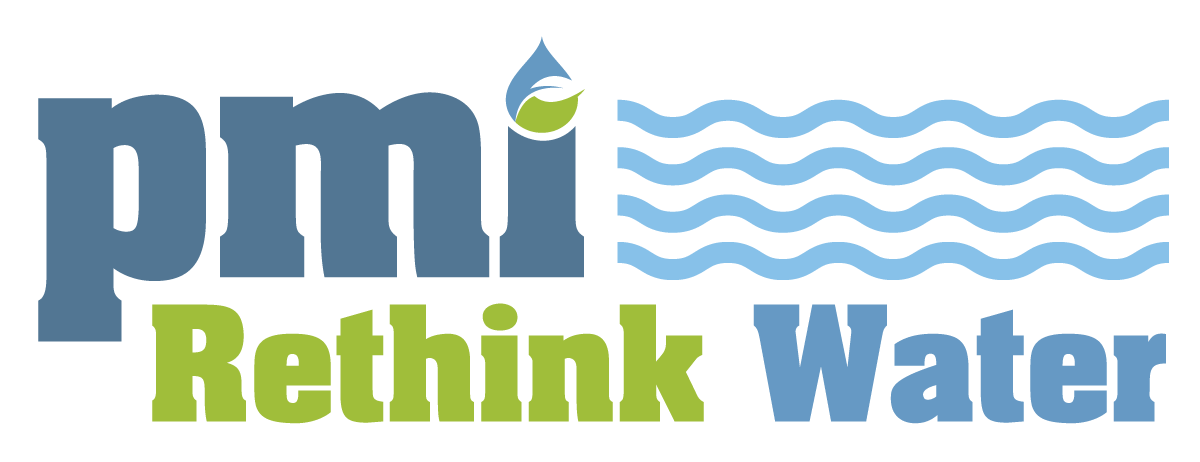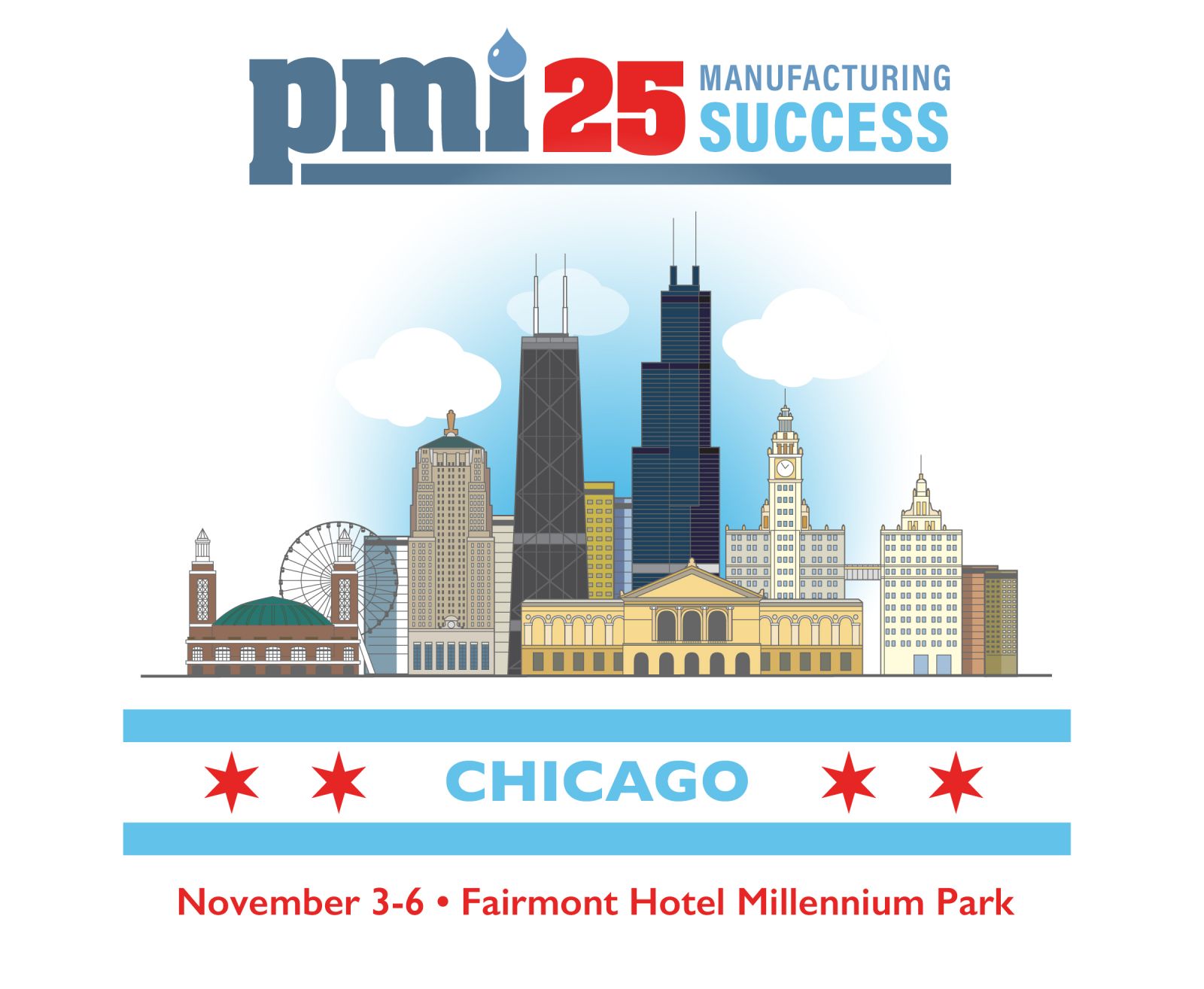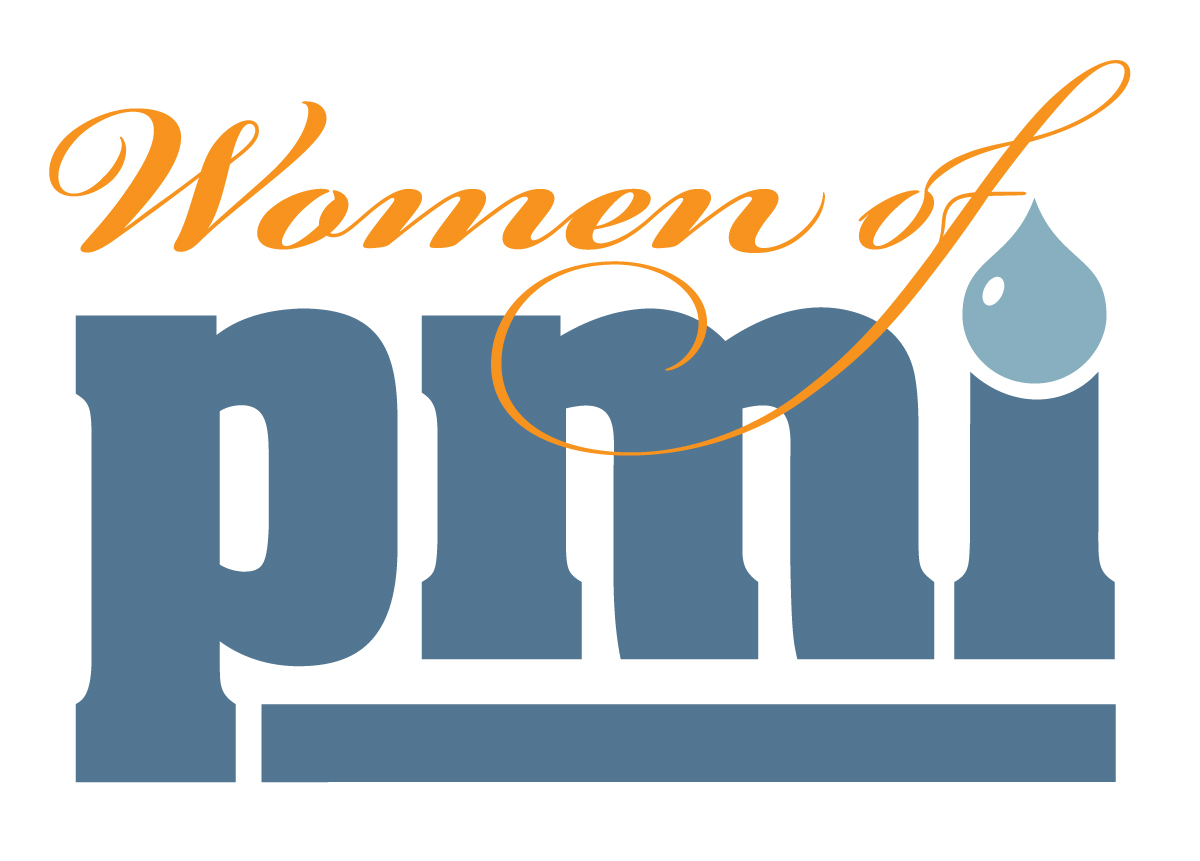July 2025
The Unvarnished Truth: Water-Efficient Products are Popular
 By Belinda Wise, PMI Board of Directors President, Neoperl US
By Belinda Wise, PMI Board of Directors President, Neoperl US
You’ve most likely heard the statistics and reviews: 76% of Americans support the government setting appliance efficiency standards (Consumer Federation of America). “Even the simplest and least expensive showerheads can provide a satisfying shower” (Consumer Reports). Efficiency standards save the average American household $576 a year on their utility bills while cutting the nation’s energy consumption by 6.5% and water consumption by 12% (Department of Energy, Biden administration).
And there’s more: indoor household water use decreased 22% between 1999 and 2016 (Water Research Foundation). According to an article in Circle of Blue, this decline in water use—from 177 gallons to 138 gallons per household per day—is not due to a green wave of environmentalism or a significant change in how people used showers, toilets and faucets, according to William DeOreo, lead author of the study. The reason households are using less water: better equipment.
This better equipment translates into happy customers. And that’s our ace in the hole: our water-efficient products are popular among our customers, no matter if the federal government likes our products or not. A quick look at the reviews of our water-efficient products marketed online demonstrates this truth.
“(The water savings) is almost all attributable to fixtures,” DeOreo told Circle of Blue, talking about toilets, faucets, showerheads, and other appliances. “It’s not like people’s habits changed. Better technology really drove the reduction. And there’s room for more improvement if we adopt the best technology out there today.” PMI’s own studies have demonstrated that replacing legacy fixtures with water-efficient ones can save tremendous amounts of water quickly.
Our product development is on the right track
As our industry enters into a new phase of deregulation, we must continue to make products that appeal to customers interested in saving water, energy and money and who are environmentally conscientious. Industry experts agree that most consumers will not be eager to swap out water-efficient fixtures for ones that will end up costing them and our planet more.
A survey by the Water Main found that most Americans (73%) believe there will be a shortage of fresh water in the foreseeable future, and 74% agree that more action needs to be taken to conserve water, according to a survey conducted by Suez Water Technologies and Solutions. Even though there’s been constant rain in the Northeast United States, significant drought persists in the West, according to the U.S. Drought Monitor. More than 29% of the lower 48 states are experiencing drought conditions this summer.
Will there be a market segment interested in inefficient products? Most likely. We know that there are already sellers of inefficient products out there, primarily on the internet and operating from locations outside the U.S. Will this dynamic make our counterfeit problem more challenging? Probably yes, because these sellers will try to convince customers that these inefficient products are manufactured by reputable brands.
Over time, we will see how this dynamic plays out. In the meantime, remember that we’re on the right track and should not be deterred. We make products that save water, energy, money, and carbon emissions. They achieve a high measure of satisfaction and popularity among our customers because they are reliable and safe.
The best thing for us to do right now is to get in touch with our customers, for they will be the final arbiters in our current debate. As Steve Jobs said, “Get closer than ever to your customers. So close, in fact, that you tell them what they need well before they realize it themselves.”
Making the Most of PMI: A Strategic Advantage for Everyone
 By Kerry Stackpole, FASAE, CAE, PMI CEO/Executive Director
By Kerry Stackpole, FASAE, CAE, PMI CEO/Executive Director
In today’s fast-moving and increasingly complex business environment, staying informed about the latest developments in one’s industry is not just an advantage—it is essential. For C-level and senior executives, who bear the responsibility for setting strategic direction and making high-stakes decisions, being out of touch with key trends, regulations and innovations can lead to costly missteps. One of the most effective tools available for maintaining industry awareness is active participation in Plumbing Manufacturers International.
PMI is uniquely positioned to gather, synthesize and distribute critical information relevant to the plumbing fixture and fittings manufacturing community. We serve as a centralized source for news on regulatory changes, technological advancements, market trends, and emerging best practices. By leveraging your association membership, you gain access to timely insights that support strategic foresight and informed decision-making.
PMI offers curated intelligence that cuts through the noise. Unlike the overwhelming flood of generalized business news, PMI filters and contextualizes information so that it’s directly applicable to you and our industry. This often includes regulatory alerts, policy updates, benchmark studies, white papers, and economic forecasts, all tailored to the concerns of industry insiders. Member company leaders who regularly engage with our resources can anticipate changes, manage risks, and position their organizations to adapt ahead of competitors.
We are conveners of thought leadership. When you participate in association events—such as conferences, summits, or webinars—you gain access to discussions led by subject matter experts, policymakers, and other top-level leaders. These settings are not just for information consumption; they are venues where you can test ideas, raise concerns, and shape the industry conversation. When you sit on the PMI board, advisory councils, tasks groups or committees, you gain even more influence over the agenda, helping to steer industry standards and legislative priorities in ways that optimize industry benefits.
It has been said, “If you need a friend, be a friend.” PMI provides unparalleled networking opportunities and a home for friendly exchanges. Peer-to-peer learning among executives across the industry is a powerful accelerant for innovation and problem-solving. Through working groups, roundtables, and informal exchanges, you can discuss shared challenges, explore new business models, and forge partnerships. Our networks also provide valuable market intelligence about customer behavior, supplier dynamics, and competitor strategies—insights that are often not available through traditional media or consultants.
Over more than 70 years, PMI has carved out a vital role in advocacy and representation. As government policies increasingly shape the business landscape, you as a leader must stay informed about legislative and regulatory activity. PMI employs a team of experienced state and federal policy experts and lobbyists who monitor developments, provide briefings, and engage with lawmakers on behalf of the industry. For you and our industry, this means not only being informed but having a voice in the policymaking process. When regulatory issues threaten to disrupt operations or increase compliance costs, PMI is well-positioned to address the challenges.
PMI increasingly invests in data, research, and communications capabilities. For example, PMI developed market research showing high levels of household non-compliance with California water-efficiency standards for water closets to support the movement toward legacy product replacement. We provide exclusive access to dashboards, analytics, and surveys that can inform strategic planning. These tools can help you benchmark performance, identify growth opportunities, and monitor key performance indicators across the industry. Such data is particularly valuable in times of disruption or transformation, when you must make fast decisions with confidence.
To fully realize these benefits, however, we encourage you to treat PMI membership not as a passive affiliation, but as a strategic engagement. This means assigning senior staff members to liaison roles and participating in our leadership councils, task groups, and committees while sponsoring research, and sharing insights back into the plumbing manufacturing ecosystem. It also means encouraging your company teams to contribute to the collective good by offering case studies, serving on panels, or joining advocacy efforts.
PMI is a powerful amplifier of awareness, influence and innovation. As you face constant disruption, we provide the context, connection and clout needed to lead effectively. By fully leveraging your PMI membership, you can remain agile, well-informed, and ahead of the curve.
New Rethink Water Chapter Covers Reducing Lead in Water
 By Judy Wohlt, PMI Communications Team, Valek and Co.
By Judy Wohlt, PMI Communications Team, Valek and Co.
Plumbing Manufacturers International recently released a new Rethink Water chapter on “Reducing Lead in Drinking Water,” which explains how to assess and reduce lead risks and highlights PMI’s advocacy efforts.
New website content discusses how reducing lead in drinking water is critical to protect children and ensure public safety. PMI has advocated for the nationwide removal and replacement of lead service lines, which are the main cause of lead in water. PMI also has championed rigorous testing of public water systems for lead.
“PMI continues to support strong protections to reduce lead contamination, and lead service line replacement is one of the best ways to achieve that. Our association and members remain committed to helping shape policies and standards that reduce lead in drinking water to keep the public safe,” said PMI CEO/Executive Director Kerry Stackpole.
Delivering plumbing that protects public health
This third Rethink Water chapter explains how plumbing manufacturers have made significant investments to develop and manufacture products that comply with federal lead-in-plumbing regulations, as well as the NSF/ANSI/CAN 61: Q ≤ 1 standard, which requires all certified drinking water devices to leach no more than 1 microgram (mcg) of lead during product testing. One mcg is equal to one-millionth of a gram. By comparison, one grain of salt is 60 times larger than 1 mcg.
PMI and its members also advocated for the bipartisan Reducing Lead in Drinking Water Act, which limits the amount of lead that can be used across the wetted surfaces of plumbing pipes, fittings and fixtures to a weighted average of 0.25% lead or less. Plumbing manufacturers have reduced the amount of lead in their products by using materials such as brass alloys and other metals, ceramics and plastics.
Removing lead service lines is crucial
Many states have already begun replacing lead service lines as required by the Environmental Protection Agency’s Improvements to the Lead and Copper Rule.
The improvements, released by the EPA on Oct. 8, 2024, require replacement of all lead service lines managed by a water system within 10 years after the compliance date of Nov. 1, 2027. The EPA’s Drinking Water State Revolving Fund provides money in some states for these projects.
The Lead and Copper Rule also requires communities to expand communications about the risk of lead in drinking water, the location of lead pipes, and plans to replace them, as well as for drinking water to be more rigorously tested to identify areas where lead-in-water content is higher than the action level of 0.010 mg/L.
Assessing risk and getting the lead out
PMI suggests many ways for people to determine if their drinking water may contain lead, such as checking with their water utility.
Typically, local water utilities publish water quality reports that assess the average amount of lead and other contaminants found in water before it leaves the water treatment plant. People can ask their local water utility if lead service lines are running from the water main to a home or school property.
Other options are to ask a plumber or school maintenance staff for help, or to check home or school records that may note a building has underground lead service lines or pipes with lead solder. Using a state-certified drinking water laboratory or a lab approved by the EPA to test water samples for lead can be helpful, too, if lead in water is suspected.
Filtration systems marked with the NSF/ANSI Standard 53 on the package are certified to reduce lead in drinking water and can be used in kitchens, classrooms, break rooms, and refrigerators. Some of the newer filters also reduce the level of other contaminants including per- and polyfluoroalkyl (PFAS) substances. PMI recommends replacing older brass faucets and valves in kitchens and bathrooms with new faucets and valves certified to the NSF/ANSI/CAN 61: Q ≤ 1 standard.
Read more at tinyurl.com/yck59tzv.
Two Dynamic Speakers Join Exciting PMI25 Lineup
 By Judy Wohlt, PMI Communications Team, Valek and Co.
By Judy Wohlt, PMI Communications Team, Valek and Co.
Two dynamic speakers have joined the exciting lineup for the PMI25 Manufacturing Success Conference, Nov. 3-6 in Chicago. Shelley Paxton, former chief marketing officer of Harley-Davidson, will lead the Women of PMI Breakfast, and Stephanie Klein, founder of Mindfire Mastery, will facilitate the PMI Inspiring Leaders Program.
PMI25 will deliver a thought-provoking mix of sessions featuring experts who will discuss the important topics of trade and tariffs, water innovations and infrastructure, PFAS, premise plumbing research, implications of AI, packaging sustainability, legislative issues, and more.
PMI Inspiring Leaders Program to focus on building mental resilience
On Nov. 3, attendees of the all-day PMI Inspiring Leaders Program will learn how Klein applied her experience dealing with health issues and stress in the fast-paced corporate world to pursue a more meaningful second act. She will discuss how to build mental resilience by shifting from burnout to balance to help attendees shine with authentic brilliance and optimize impact, relationships and wellbeing.
Her journey to becoming an executive coach, author and creator of the Mindful Leadership Program for the University of Chicago’s Booth School of Business involved several tribulations. For example, as a new chief marketing officer in 2008, she led her global team through the financial crisis. Several years later—after being diagnosed with life-threatening breast cancer—she realized mindfulness, self-compassion and balance were critical for her to heal.
After another challenging time in 2017 when she had a leadership role in a transformative acquisition, she realized she was ready for a change. Her disruptive story of leaving the C-suite was published in the bestselling anthology, “Turning Point Moments: True Inspirational Stories of Creating a Life that Works for You.” She also authored the book “Shining Through Disruption: 9 Mindsets for Igniting Growth to Become an Authentic Leader.”
As an executive coach, trainer and educator, she is passionate about empowering elite professionals to thrive through change.
The program will take place at the inspiring, colorful and playful Catalyst Ranch in the city’s West Loop. The funky meeting space, housed in an 1880s industrial building previously used for meatpacking and sausage smoking, is designed to encourage creative thinking and new ideas.
Breakfast speaker to share her radical new way of leading
During the Women of PMI Breakfast on Nov. 5, Paxton, founder of Shelley Paxton and Soulbbatical, will share how she walked away from one of the “sexiest jobs in the world” and into her “soulbbatical.” Her presentation will focus on redefining greatness and beating burnout.
She will discuss her former role as chief marketing officer of Harley-Davidson, which ticked all the boxes of traditional success but left her exhausted, empty and unfulfilled, her website reported. When she left that role, Paxton said she discovered a radical new way of leading. Her mission is to empower leaders, entrepreneurs and organizations to feel more alive, aligned and energized for greater impact in the world—not on their wellbeing.
Paxton said that a radical re-imagining of work is essential to creating the empowering antidote to burnout, disengagement and attrition. She invites clients to “imagine a bolder, braver, more badass world” where success isn’t measured by busy-ness, but by wellbeing and soul, her website stated.
She also wrote the book “Soulbbatical: A Corporate Rebel’s Guide to Finding Your Best Life,” which discusses how illness, divorce, addiction, and tragedy woke her up and ignited a new mission to encourage others to live their most authentic, courageous and purposeful lives.
Learn more about the PMI25 Manufacturing Success Conference on the PMI website safeplumbing.org/pmi25.
All Media (And All Brands) Are Now Social
By Ray Valek, PMI Communications Team, Valek and Co.
Today’s social media environment is characterized by interactive two-way communication, openness to all who wish to participate, sharing, and a community orientation. To survive in this environment, traditional media have adopted the same characteristics; they are no longer one-way, the comments section is often more interesting than the articles themselves, and they have become more tribal.
Brands also find themselves in the same dynamic. They have become immediately accountable to customers and communities. A quick look at the daily news shows that there’s no place to hide anymore, and good or bad news for brands can quickly go viral.
The good news is that the plumbing manufacturing brand is doing quite well within this environment, considering recent favorable media coverage and customer sentiment. We’re winning hearts and minds at a time when that’s not a sure thing.
PMI measures the effectiveness of its communication by monitoring traditional media coverage, social media engagement, PMI member engagement, and website activity. Media coverage so far in 2025 includes two articles by Consumer Reports, as well as articles by Bloomberg Opinion, Slate magazine, and NBC News, as well as from various plumbing and water trade media.
The first Consumer Reports article states that their lab test results show that water-efficient toilets don’t sacrifice flushing performance and can save customers money. “Water-efficient toilets have been around for 30 years,” said Katy Halevah, who leads testing for the dozens of models in CR’s toilet ratings. And they’ve been reliable for just as long, the article says. The second article—featuring PMI CEO/Executive Director Kerry Stackpole and information from PMI about how to buy high quality fixtures and fittings—warns consumers about the dangers of using counterfeit and non-certified contraband faucets and plumbing products.
The Bloomberg Opinion article notes the direct economic impact of the plumbing manufacturing industry—more than 200,000 jobs in 41 states and $13 billion in wages, according to the Plumbing Manufacturing Industry Economic Impact Study—and how the industry would be negatively affected by tariffs.
The Slate article also quotes Stackpole, along with individuals from TOTO USA and Kohler, and casts a favorable light on the Environmental Protection Agency’s WaterSense Program, PMI’s Rethink Water legacy product replacement initiative, and other industry accomplishments. Writer Anna Gibbs sums it up: “The evolution of the toilet is a success story that, against all odds, has brought us an efficient, affordable, and high-performing consumer good. And it’s hard to flush that kind of progress away.”
During his May 14, 2025, testimony to the U.S. Senate Subcommittee on Intellectual Property covered by NBC News, Aaron Bores, from PMI member Moen, a part of Fortune Brands Innovations, asked the federal government to close loopholes that allow the sale of counterfeit faucets. Moen worked with another PMI member, IAPMO, to test 19 of the top-selling inexpensive foreign-made products. The IAPMO lab found 17 of the 19 faucets failed to meet national drinking water standards for lead or organic compounds including carcinogens. On the same day as Bores’ testimony, the U.S. Consumer Product Safety Commission recalled four Chinese-made faucets.
Despite the many stories published about President Donald Trump’s dissatisfaction with water-efficient plumbing products, virtually all stories published recently about the plumbing manufacturing industry have expressed positive or neutral sentiment for the industry, according to the Cision media monitoring service.
On social media, PMI focuses its effort on LinkedIn because it’s the platform for business, with some posting on Facebook, Instagram and Substack. Over the past year, PMI’s overall organic engagement on all three of these platforms and on LinkedIn in particular has surged upward. New social media tactics this year include a Rethink Water newsletter published on LinkedIn and Substack, where it has more than 4,000 subscribers combined.
PMI Communications works hand-in-hand with PMI Programs and Administration to maintain and activate member engagement. By increasing the number of virtual programs, PMI set a new record in 2024 with 243 attendees of virtual programs and 140 for live events, for a total of 383. This year, with 247 having participated in virtual programs and 21 live through April 30, we are on record-setting pace again.
In addition, PMI has successfully encouraged 79 more employees of PMI member companies to access their PMI member benefits this year, thanks to the virtual programs and PMI ambassadors distributing PMI’s welcome package and video.
Other important aspects of member engagement include reading Inside My PMI, Ripple Effect, the PMI Annual Report, PMI news releases, and the PMI website. Over the past year, these PMI communications continued to be helpful resources for PMI members wishing to keep up with PMI news and reports, as well as industry issues and trends.
As PMI Communications continue to follow the PMI Board of Directors’ strategy to “build a brand called PMI,” we are always open to your input into how we can even better support PMI member engagement, retention and support.
Maryland and Washington Enact New EPR Packaging Laws
 By Judy Wohlt, PMI Communications Team, Valek and Co.
By Judy Wohlt, PMI Communications Team, Valek and Co.
Maryland and Washington recently enacted new extended producer responsibility (EPR) packaging laws, adding to the nationwide patchwork of regulations that plumbing manufacturers must follow.
The two states join California, Colorado, Maine, Minnesota, and Oregon in passing various EPR laws meant to encourage more companies to use additional sustainable packaging materials. The laws will shift some of the financial responsibility of managing packaging waste from municipalities to “producers,” typically manufacturers, brand owners, or importers. As these laws come fully into effect, producers will be responsible for the entire packaging lifecycle in EPR states where their products are shipped or sold and must pay fees based on the amount and type of product packaging they use.
Plumbing Manufacturers International has been closely tracking all proposed EPR legislation and partners with the American Institute for Packaging and the Environment (AMERIPEN) to provide input and comments to the states as they develop these laws.
“Ultimately, our members would benefit from a more predictable EPR environment, which would likely require a comprehensive federal EPR law,” said Matthew Windrum, PMI’s director of state government affairs, policy and advocacy. “In the absence of federal action, however, plumbing manufacturers must maneuver through the growing collection of state laws, fees, timelines and compliance obligations.”
The good news is that the EPR laws in Maryland and Washington generally align with Minnesota’s law, which AMERIPEN has described as reliable, efficient, equitable, fair and effective, as well as a strong model of genuine shared responsibility. Both laws also require producers to join a Producer Responsibility Organization (PRO). Washington’s PRO will offer a single point of compliance for producers to meet state-specific regulatory requirements, while Maryland’s law permits multiple PROs to encourage competition, reported a Waste Today article.
States establish compliance requirements and timetables
Maryland’s law, SB 901, and Washington’s law, SB 5284, cover both packaging and paper products and have established compliance requirements and timetables for producers.
“Producers in Maryland must submit a covered materials producer responsibility plan to the state’s Department of the Environment to review and approve on or before July 1, 2028, and every five years after that date,” Windrum said. The plan is required to include an assessment of each covered material’s generation of hazardous waste, greenhouse gases, environmental justice and public health effects, and other effects.
Cost responsibility in Maryland will be phased in over several years with producers covering 50% of program costs by July 1, 2028; 75% by 2029; and 90% by 2030, stated a Waste Today article. Funds collected will support the state’s recycling and composting infrastructure, reuse projects, and education and outreach.
Washington’s law requires producers to establish and join a PRO by 2026, and to re-register and pay fees annually. Starting March 1, 2029, the law prohibits a producer that is not in good standing with a registered PRO—or has not submitted an individual plan—from introducing covered materials into the state, Windrum reported.
Under the new law, the state’s Department of Ecology must develop a list of covered materials verified to be recyclable or compostable. The department also must complete a recycling needs assessment by Dec. 31, 2027, and every five years thereafter, Windrum added.
By Feb. 13, 2032, producers will be required to reimburse waste service providers 90% of recycling system costs, with the funds potentially used for system improvements, according to the bill.
Women of PMI Encouraged to Attend July 16 Program
 Join us on July 16 from 1-2 p.m. CT for “Women Breaking the Mold: Building Confidence in an Ever-Changing Landscape.” This transformative virtual Women of PMI program will be led by best-selling author and acclaimed speaker Sheena Yap Chan. Encourage your female colleagues to participate and learn proven strategies for building confidence. All women of PMI member companies are invited to participate in this complimentary event—thanks to your company’s PMI membership.
Join us on July 16 from 1-2 p.m. CT for “Women Breaking the Mold: Building Confidence in an Ever-Changing Landscape.” This transformative virtual Women of PMI program will be led by best-selling author and acclaimed speaker Sheena Yap Chan. Encourage your female colleagues to participate and learn proven strategies for building confidence. All women of PMI member companies are invited to participate in this complimentary event—thanks to your company’s PMI membership.
Yap Chan will guide you through practical tools and techniques to overcome self-doubt, embrace your unique strengths, and rise as a confident leader—both in the workplace and in your personal life. Confidence is one of the most powerful tools you can wield. Yet, women often face societal pressures and internal doubts that undermine their leadership. Yap Chan will help you:
Understand how the “confidence gap” affects your career advancement:
- Learn how to advocate for yourself effectively, in meetings, negotiations, and everyday work interactions
- Discover how confident leadership can transform company culture from the ground up
- Build long-lasting strategies for mentorship, allyship, and success in environments where women are underrepresented
The Women of PMI initiative celebrates, honors and supports the contributions of PMI’s women members to the plumbing manufacturing industry. The program delivers valuable networking opportunities, information to help develop career and leadership skills, and a platform to highlight the accomplishments of women PMI members.
Yap Chan is an author, keynote speaker, strategist, and award-winning podcaster renowned for her expertise in elevating women’s leadership skills and self-confidence. The founder and host of the acclaimed podcast, The Tao of Self-Confidence, Yap Chan interviews women about their journeys to self-confidence. With over one million downloads, the podcast ranks among the top 0.5% in global popularity and features over 800 interviews, including conversations with celebrities and eight-figure CEOs.
Register for the program at tinyurl.com/3x6pbuux.


